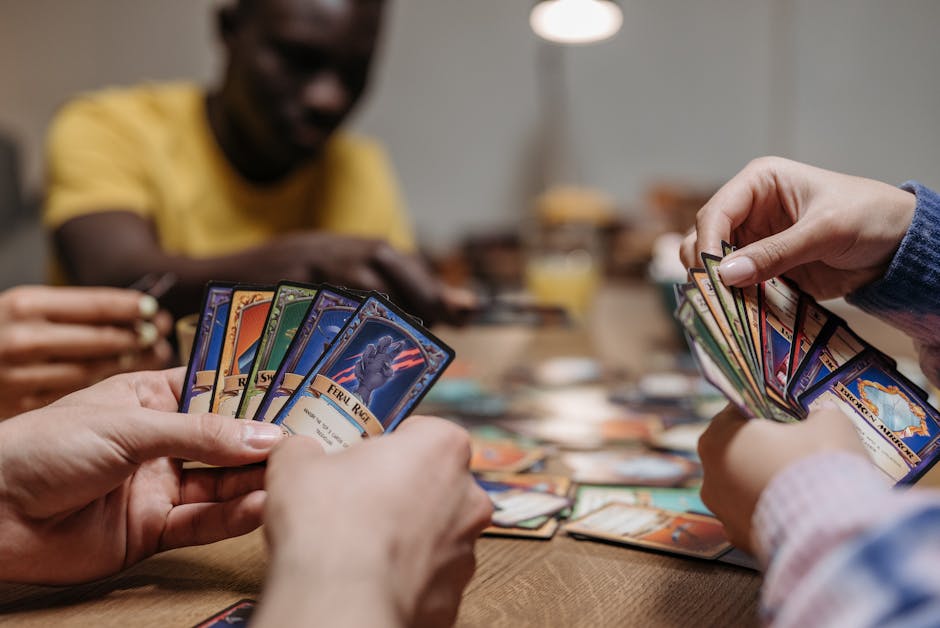Improving your decision-making skills is like sharpening a tool you use every single day. Whether you’re deciding what to eat for dinner or making a career-changing choice, the ability to make sound decisions impacts every corner of your life. The good news? Decision-making is a skill you can improve with practice and the right strategies. Stick around, and you’ll learn how to make choices with confidence, clarity, and purpose.
Key Takeaways
- Effective decision-making is a skill that can be developed with practice and strategy.
- Setting time limits, gathering information, and weighing pros and cons are essential steps.
- Confidence, adaptability, and self-reflection play a crucial role in improving decision-making.
- Training and leadership development can further enhance your ability to make impactful decisions.
Understanding Effective Decision-Making
Definition of Effective Decision-Making
Effective decision-making is the process of choosing the best possible option from a set of alternatives. It’s not just about picking something—it’s about making choices that align with your goals and values.
Good decisions are informed, timely, and thoughtful. They balance logic and intuition, ensuring you’re not just reacting but responding with purpose.
Importance of Decision-Making in Personal and Professional Contexts
Think about it: every major milestone in life—relationships, careers, finances—hinges on decisions. At work, your ability to make quick yet thoughtful choices can set you apart as a leader.
In your personal life, good decision-making can lead to healthier relationships, better financial stability, and overall happiness. It’s a skill that touches everything.
Characteristics of Effective Decision-Makers
What makes someone a great decision-maker? They’re confident but not arrogant, logical yet open to intuition, and adaptable when things don’t go as planned.
They also know how to manage stress and avoid being paralyzed by overthinking. These traits can be cultivated with practice and awareness.

Key Strategies to Improve Decision-Making Skills
Setting a Time Limit to Encourage Decisiveness
Avoiding Procrastination
Procrastination is the enemy of good decisions. When you delay, you often end up making rushed or poorly thought-out choices.
Set a timer or deadline for yourself. Even if it’s a small decision, giving yourself a time frame can push you to act instead of overthinking.
Managing Time Effectively
Time management isn’t just about meeting deadlines; it’s about creating space to think clearly.
Break down complex decisions into smaller steps, and allocate time for each. This way, you’re not overwhelmed by the enormity of the choice.
Gathering Relevant Information
Researching Data and Facts
A decision is only as good as the information it’s based on. Take the time to gather accurate, up-to-date data.
For example, if you’re deciding on a career move, research industry trends, salary expectations, and growth opportunities.
Consulting Experts or Reliable Sources
Sometimes, you need a second opinion. Talk to people who’ve been in your shoes or consult credible sources.
This can help you see blind spots and make a more informed choice. For more on avoiding common pitfalls, check out this guide on systematic errors in decision-making.
Deciphering Facts Versus Opinions
Identifying Objective Information
Not all information is created equal. Learn to separate facts from opinions.
For instance, a fact might be, “This job offers a 20% salary increase.” An opinion could be, “This job seems like a better fit.”
Avoiding Biases in Decision-Making
We all have biases, whether we realize it or not. Being aware of them can help you make more objective decisions.
For example, confirmation bias might lead you to favor information that supports what you already believe. Challenge yourself to consider opposing viewpoints.

Evaluating Options and Outcomes
Weighing Pros and Cons
Analyzing Potential Benefits and Risks
Every choice comes with trade-offs. Write down the pros and cons of each option to visualize the potential outcomes.
For example, if you’re deciding whether to move to a new city, weigh the benefits (career growth, new experiences) against the risks (leaving friends, higher cost of living).
Prioritizing Options Based on Outcomes
Not all pros and cons are equal. Prioritize them based on what matters most to you.
If financial stability is your top priority, a higher salary might outweigh other factors.
Focusing on the Desired Outcome
Setting Clear Goals
Before making a decision, ask yourself: What do I want to achieve? Clear goals act as a compass, guiding you toward the best choice.
Aligning Decisions with Long-Term Objectives
Think beyond the immediate impact. Will this decision bring you closer to your long-term goals?
For example, taking a lower-paying job might make sense if it offers better growth opportunities in the future.

Building Confidence and Adaptability
Trusting Your Inner Voice and Intuition
Recognizing the Value of Personal Judgment
Sometimes, your gut knows what your brain hasn’t figured out yet. Trusting your intuition can be especially helpful when you’re short on time or information.
Balancing Intuition with Logic
That said, don’t rely solely on your gut. Use it as a starting point, then back it up with logic and evidence.
Being Flexible in Decision-Making
Adapting to Changing Circumstances
Life is unpredictable. A good decision-maker knows when to pivot and adjust their plans.
For example, if a job offer falls through, view it as an opportunity to explore other options.
Learning from Past Decisions
Every decision, good or bad, is a learning experience. Reflect on what worked, what didn’t, and why.
For more on how self-reflection can improve your decision-making, read this insightful article.

Enhancing Decision-Making Through Training and Leadership
Taking Decision-Making Training
Benefits of Formal Education in Decision-Making
Formal training can provide you with tools and frameworks to make better choices.
Workshops, online courses, and books are great resources to start with.
Resources for Skill Development
There are countless resources available, from blogs to podcasts. For example, this Reddit thread offers practical advice from real people.
Better Decisions Make Better Leaders
Correlation Between Decision-Making and Leadership Effectiveness
Strong decision-making skills are a hallmark of great leaders. They inspire confidence and trust in their teams.
Leading with Confidence and Managing with Impact
When you make thoughtful, decisive choices, you set an example for others. This not only boosts your credibility but also fosters a culture of trust and collaboration.
Improving your decision-making skills is a journey, not a destination. By practicing these strategies, you’ll not only make better choices but also feel more confident and in control of your life.
So, what’s your next decision going to be? Will you take the first step toward becoming a better decision-maker today?
FAQ: Unlocking the Secrets to Better Decision-Making Skills
What are decision-making skills, and why are they important?
Decision-making skills are the ability to choose between different options effectively and efficiently. They are crucial because they impact personal and professional success, helping you solve problems, set goals, and navigate complex situations with confidence.
What are some common barriers to effective decision-making?
Common barriers include overthinking, fear of failure, lack of information, emotional biases, and decision fatigue. Recognizing these obstacles is the first step toward overcoming them and making better choices.
How can I improve my decision-making under pressure?
To make better decisions under pressure, practice staying calm, gather relevant information quickly, and focus on the most critical factors. Techniques like deep breathing and prioritizing tasks can also help you maintain clarity in high-stress situations.
What role does critical thinking play in decision-making?
Critical thinking is essential for effective decision-making as it helps you analyze information objectively, evaluate options, and anticipate potential outcomes. It ensures your decisions are logical and well-informed rather than impulsive.
Can improving emotional intelligence enhance decision-making skills?
Yes, emotional intelligence allows you to understand and manage your emotions, as well as empathize with others. This helps reduce emotional biases, improve communication, and make more balanced and thoughtful decisions.
What strategies can help me avoid decision fatigue?
To avoid decision fatigue, prioritize important decisions early in the day, simplify routine choices, and delegate tasks when possible. Taking breaks and maintaining a healthy work-life balance also helps preserve mental energy for critical decisions.
How can I evaluate the success of my decisions?
Evaluate your decisions by reflecting on the outcomes and comparing them to your initial goals. Consider what went well, what could have been improved, and what you learned from the process to refine your decision-making skills over time.
Are there tools or techniques that can aid in decision-making?
Yes, tools like decision matrices, SWOT analysis, and pros-and-cons lists can help structure your thought process. Techniques like the 10-10-10 rule (considering the impact of a decision in 10 minutes, 10 months, and 10 years) can also provide valuable perspective.
How can I involve others in the decision-making process effectively?
Involving others can provide diverse perspectives and expertise. To do so effectively, clearly communicate the problem, encourage open dialogue, and ensure everyone feels heard. Collaboration often leads to more informed and well-rounded decisions.
What are some habits that can strengthen decision-making skills over time?
Develop habits like setting clear goals, staying informed, practicing mindfulness, and reflecting on past decisions. Regularly challenging yourself with new experiences and learning opportunities can also sharpen your decision-making abilities.



